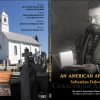Kao diplomata je službovao je Bernu, Londonu, Parizu, Stokholmu, Beču itd., a obavljao je i razne dužnosti u ministarstvu spoljnih poslova Kraljevine SHS/Jugoslavije (šef Odeljenja za Ligu naroda, direktor Političkog odeljenja, pomoćnik ministra spoljnih poslova). Kao stalni delegat Jugoslavije pri Društvu naroda, učestvovao je na skoro svim međunarodnim konferencijama od 1926. do 1935. Smišljene intervencije i kontruktivni predlozi doneli su Fotiću veliki ugled među kolegama; često je bio pozivan da ravnopravno sa delegatima velikih sila učestvuje u najvažnijim sastancima vodećih evropskih državnika. Za poslanika u Vašingtonu postavljen je 1935. Kad je 1942. poslanstvo podignuto na rang ambasade, Fotić je postao prvi ambasador Jugoslavije u SAD.
Sahranjen je na groblju manastira Svetog Save u Libertivilu, Ilinois.





